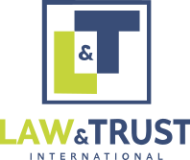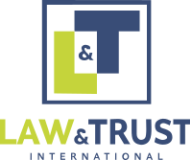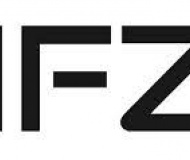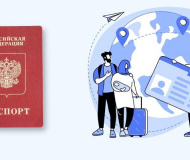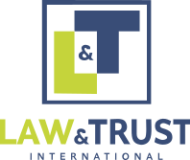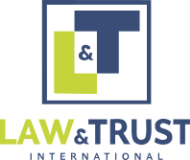FAQ regarding companies in Europe
News:
Date added: 20.06.2016Law&Trust International takes care of its clients and publishes the most frequently asked questions within the framework of working with European companies:
Company in Great Britain (British company) - LTD
Company in Cyprus (Cyprus company) - Private company limited by shares (Limited)
Question 1:
Cyprus company provides services in advertising and promotion of products in Russia for British company. Do we need to pay VAT due to these operations on part of Cyprus Company? Could we avoid paying VAT for Cyprus Company using legal type of business, which are not taxed by VAT?
Answer:
Paying VAT regarding these operations is required.
VAT in this case is paid in Great Britain, as the location of the recipient of services. In accordance with the EU Directive on VAT when it comes to providing services, they are subject to VAT at the location of the customer, that is, in this case at the location of the company from England. The standard VAT rate in England is 20%.
However, in fact, British company, being a customer of services from Cyprus company, will not pay VAT. For correct indication in the reporting of British company, it is necessary to include VAT in the account of the paid amount of payment for the services of Cyprus company and then to receive the amount of VAT back (to deduct VAT). As a result, the tax will be equal to 0, which is indicated in the VAT declaration. In the practice of accounting for British companies, this is called "Reverse charge" (withholding at the source of payment of tax) and applies to all British companies that buy services abroad. However, if the purchase of such services is in the UK, VAT would be payable.
Goods and services not subject to VAT in Great Britain:
- insurance, financing, crediting;
- education and training;
- activities of charitable foundations;
- sale, leasing and rent of land and buildings for commercial purposes - this exemption can be canceled.
Question 2:
Cyprus company provides services in advertising and promotion of products in Russia for British company. British company buys goods from Germany company and re-sells it to Russian company. Let’s consider single good’s supply chain: Price for goods from Germany company to British company is 50 USD without VAT. British company sells these goods to Russian company at the price of 100 USD without VAT. Price for promotion of these products from Cyprus company is 45 USD without VAT. Margin before taxes is 5 USD without VAT. Are there any formal or informal laws from regulators about legal marks (for example: 5 USD margin before taxes from 100 USD turnover) of minimum efficiency of business, tax load and corporate law level according turnover?
Answer:
- 1.Although there are no restrictions on the profitability, efficiency and economic feasibility (benefit) of business imposed by the legislation, the company will have to pay corporate tax on profits regardless of their volume.
- 2. From April 1, 2015, the UK introduced diverted profits tax (DPT). But this tax applies to those companies that enter into transactions with affiliates in order to transfer profits and avoid paying taxes in the UK. If the activity is not carried out in the UK and there are no suppliers and buyers, this tax is not payable.
Question 3:
German company sells goods to British company knowing that these goods will be exported to Russian company. Goods will not be customs cleared in the UK (drop shipping) and will be send directly to Russia by forwarder. Could it be that Germany company prepare invoice to British company without VAT? In which cases? If not, what is the procedure to re-claim VAT back and during what time the company could do it?
Additional: German company has VAT. The main question then is: under what conditions the company in Germany will be able to issue invoice without VAT?
Answer:
Provided that both European companies (German and English companies) are VAT payers, VAT is payable by the UK company receiving the goods.
German company does not include VAT in the invoices for the supply of goods to the British company, but makes a note "reverse charge", which indicates the obligation of British company to declare and report VAT in the UK.
British company calculates VAT in accordance with the reverse charge procedure (see answer to question 1) when, in course of submitting the VAT declaration, it charges VAT and simultaneously deducts it.
As for the delivery of goods, the parties have the right to agree and prescribe in the contract the most favorable conditions for the delivery of goods, fixed in Incoterms 2010. Selection of terms of delivery must be made incl. taking into account the need to register VAT number. In the event that both companies are registered for VAT, the VAT number of both companies will be indicated in the invoice.
German company must have all the necessary documents for the delivery (proofs of delivery). Within the EU, in case of delivery between Germany and the UK, the delivery can be documented as under the contract (if the contract is to be signed, the delivery to a third party should be specified), and simply under the invoice, whereas the Anglo-Russian documentation must necessarily include the contract.
The list of basic documents includes the following transport documents (the full list is specified for a specific delivery):
- Invoice.
- Packing list or package slip (cargo-accompanying document containing a list of goods and cargo items).
- Specification containing a list of goods supplied with an indication of the quantity for each type, brand, codes of nomenclature of goods, product item, etc.
- EX-1 Declaration. In case of exporting goods outside the EU, generally accepted international document such as EX-1 export declaration is used, and the document is issued when the goods are exported. Declaration must accompany the goods to their destination. When exporting goods from the European Union, the customs office puts a stamp. The original of the export declaration with a stamp is sent to the sender of the goods, which allows the consignor to sell the goods without paying VAT. At the same time, it allows the buyer of the goods to avoid paying VAT when leaving Europe.
- International road consignment note or Contract for the International Carriage of Goods by Road (CMR) is a transport document that confirms the existence of an agreement between the carrier and the sender for the road transport of goods, that is signed by the carrier and the consignor.
Question 4:
What is the attitude of the USA and Central Europe to supply of equipment for Cyprus company with the bank of Latvia?
Answer:
In general, there are no prejudices among the companies. Extremely rare in some cases there can be only questions from the banks in which the accounts of these companies are opened. At the initial stage of the negotiations, it is worthwhile to clarify whether the bank of a specific supplier company is working with the Baltic Bank (for example, on incoming payments).
Question 5:
Is it possible for British company to provide interest-free loan to Cyprus company considering that Cyprus company could not get money back. If yes, how many times it is possible to do the foregoing? Are there any limits according the amounts?
Answer:
Granting of interest-free loans to a third party that is not affiliated with the mutuant company without commercial justification is unlikely.
When British company submits reporting, the tax authorities will have questions on what grounds British company granted an interest-free loan to another legal entity, but not officially affiliated with British company. Such loans can be granted only to an affiliate or a subsidiary enterprise, provided there is substantial commercial justification.
Question 6:
Is it possible for British company to sign an agent contract with Cyprus company for searching and making agreements with potential customer to buy products from British company with agent royalty for all business in future. What is usual percent for this in EU?
Answer:
British company can conclude an agent contract with Cyprus company. For this work, payments will not be royalties (royalty is a licence fee payment, not an agent one), but agent fees under commission agent agreement/ commission contract/ agent contract. The amount and order of payments for this work are carried out on the conditions that will be prescribed in the contract, so payments can be periodic.


